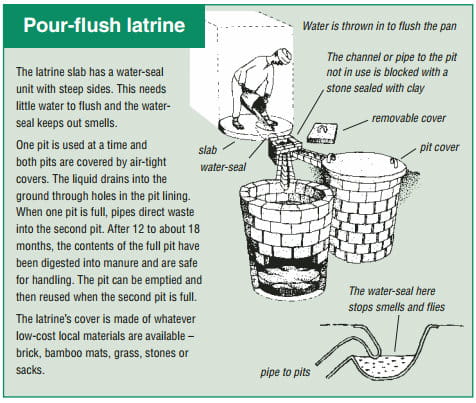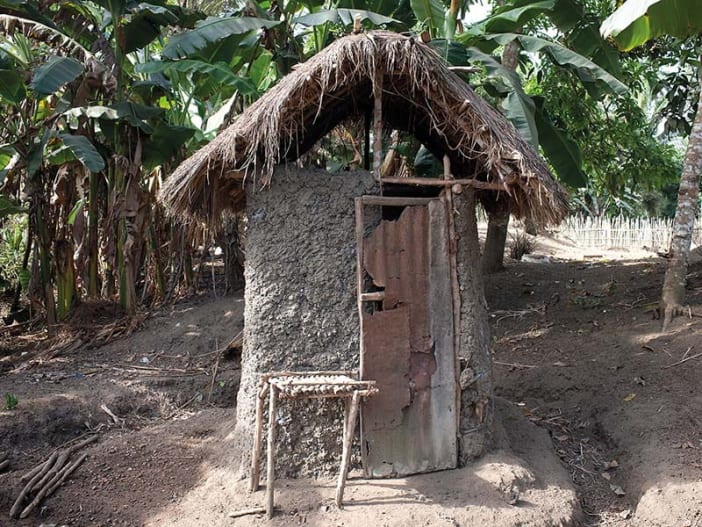The work of removing human waste (sometimes called night soil) from homes that lack adequate sanitation systems, is regarded as the lowest of all work in India. It is carried out by people called Harijans, belonging to the caste known as the Untouchables.
Today, there are still over 600,000 Harijans in India who collect waste from bucket toilets, carrying it on their heads and dumping it in fields and canals. This work puts their health at risk.
Bindeshwar Pathak is a social scientist who has made it his life’s work to improve this situation. He discovered that most low-income urban households lacked access to sanitation and that few of India’s 3,250 major towns and cities had an adequate sewage system. Today, one third of the country’s population still lacks access to basic sanitation. He carried out detailed research to find the best solution.
Pour-flush latrines
In 1970 he founded the Sulabh International Social Service Organisation. The objectives of Sulabh International include:
- restoring human rights and dignity
- freeing Harijans from the unpleasant work of handling human waste
- rehabilitating Harijans and training them for other jobs
- promoting the status of Harijans as equals in society
- improving health and hygiene
- educating people not to defecate in the open
- motivating people to build and use Sulabh toilets
- providing community toilets and bathing facilities in slum areas for a small fee
- encouraging people to plant trees around latrines
- harnessing energy from human waste
- using the manure from Sulabh toilets to raise farm productivity.
Sulabh promotes a simple design for pour-flush latrines with two pits. The minimum cost is US $50 but with local help they can be built for as little as US $30. Regional governments will often contribute half the cost of individual latrines.
For more than 20 years, the social activist and his 50,000 volunteer field workers have led a campaign across India to persuade people to use latrines. His organisation, Sulabh International, has now built well over one million latrines in 1,080 towns across the country.
In overcrowded slums and busy areas, such as rail and bus stations, Sulabh has built over 7,500 pay-and-use community toilets, with larger pits. These are built in collaboration with local authorities who provide the land and building materials. Sulabh manages the building and main tenance. By charging one rupee (2 US cents) a visit, Sulabh can employ staff to keep them clean. Attached to many of these are public bath centres, which provide clean drinking water, showers and a place to wash clothes. These are paved and walled, decorated with potted plants or gardens and kept clean. Armed guards are also on duty. Sewage is collected in tanks at 160 of these centres and connected to biogas converters to produce biogas.
As a result of the work of Sulabh Inter national about 37,000 Harijans have now found other work. Sulabh’s activities include providing training and employment to children of Harijans. Institutes provide training for the children in a variety of skills to enable them to find work as, for example, electricians, carpenters, builders, administrators, tailors and mechanics.
Mr Pathak has even opened a museum of toilets in New Delhi. This records the history of sewers, drainage, disease and latrines. He hopes it will help to change attitudes towards human waste.
A recent evaluation (Beyond Boundaries, Asian Development Board) found that:
- nearly half the latrine users earned less than the minimum wage, indicating their low-income status
- over 75% of users were happy with the charges and the clean facilities
- 84% were regular daily users of the facilities. Even among migrant and low income urban slum dwellers, there is a willingness to pay for good facilities – and other agencies are now following the example of Sulabh International.
Compiled from information from Sulabh International.
Email: [email protected]
Website: www.sulabhinternational.org










